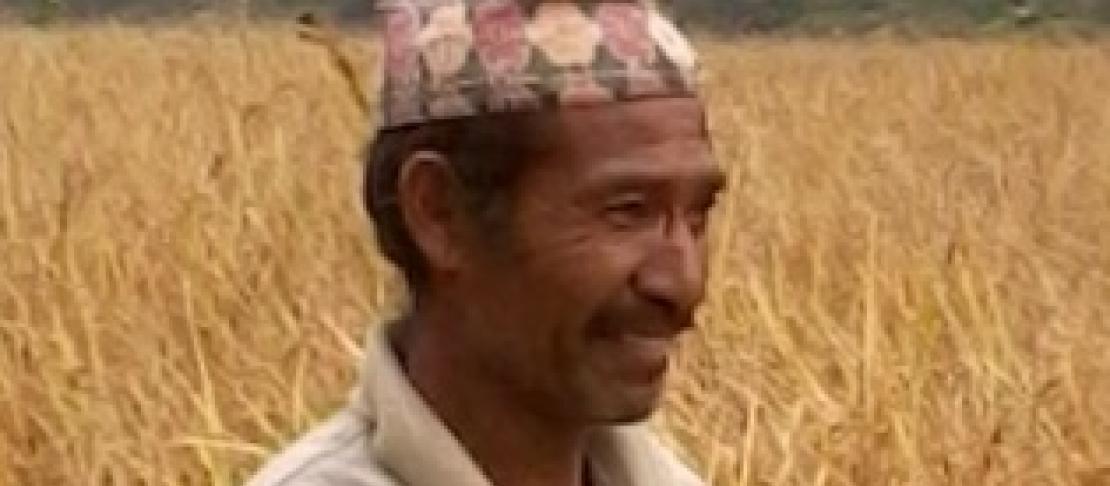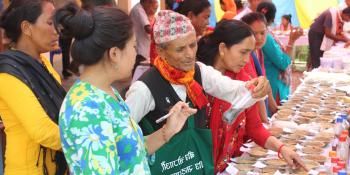Farmers' corner: Nepalese farmers talk about the changing climate

Raj Krishna Mushyan and Padam Bahadur Shrestha, both farmers from Nepal talk about the climate smart agriculture learning platform, recently launched in the South Asia benchmark site and about the changing climate in their areas affecting their lives and farms.
Raj Krishna Mushyan:
My village Madhyapur Thimi is known as the green vegetable garden of Kathmandu valley, where majority of Newars (ethnic group) are still engaged in agriculture, mostly in vegetable production. We grow a variety of vegetables and supply them to the Kathmandu valley. I can recall changing pattern of farming within our community over the years. My grandfather was totally dependent on ecological farming practices. He used to employ locally available seeds and manure. Later on, the government initiated programs to enhance agriculture production. Farmers were taught to follow intensive agriculture using imported agro-chemicals. They continued using agro-chemicals in increasing amounts year after year, which resulted in declining productivity and had a negative impact on agro-ecology. Now, I also notice a change in climate patterns, particularly in rainfall and temperature. The characteristics of seasons (winter, summer, rain) are less predictable now. Less rainfall and increasing temperatures, along with declining agro-biodiversity are making our lives miserable. I think we will have a serious food deficit in the near future.
I feel lucky to have an opportunity to participate in the Climate Smart Agriculture Learning Platform. On behalf of fellow Nepali farmers, I would like to request the CGIAR Research Program on Climate Change, Agriculture and Food Security (CCAFS) to start a resource center here in Nepal so that a large number of farmers can reap the benefits of the learning platform.
Padam Bahadur Shrestha:
Farming is my family occupation; I have been involved in agriculture since childhood. I have witnessed the transformation of agriculture from subsistence farming to commercial practice using imported inputs. However, the output is not satisfactory as the yields are diminishing in an unprecedented manner since the last decade. I have been using all my efforts to investigate the root causes of this decline. I also consulted a nearby agro-service center and used some local measures they suggested, but the yield was not restored. Farmers in the village feel that there is a change in weather pattern, both in precipitation and temperature. I tried to find more about this, and went to the District Headquarters in hopes of finding someone who could translate all the technical issues surrounding climate change in simple layman terms. However, it has been my experience that most information is scattered and ambiguous. Therefore, I am looking for a hub where I can access comprehensive information in one place, and get reliable answers to my related queries. It's a pleasure to hear that a newsletter has been initiated with the objective to provide a platform for disseminating this information, where farmers like me can share their experiences. I hope this platform will be a useful forum for all farmers, one which will help them learn more about and resolve the potential risks of climate change in the agriculture sector.
More information
Read more about Climate Change, Agriculture and Food Security work in South Asia.
To get more updates on our research in South Asia, follow us on Facebook and Twitter @Cgiarclimate.


